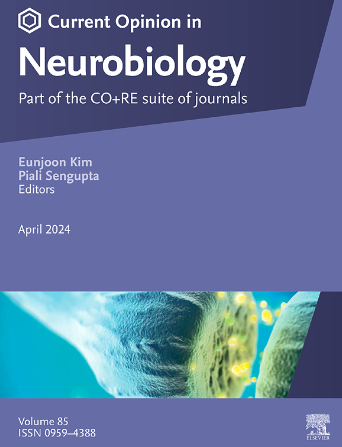Tricking our brains to learn and remember; is all learning incidental?
IF 5.2
2区 医学
Q1 NEUROSCIENCES
引用次数: 0
Abstract
Do we choose what we learn? On the contrary, research suggests that much of learning is incidental. The present article reviews frameworks of incidental statistical and perceptual learning and discusses implications of these frameworks to memory. This research supports the premise that much of what we know is shaped by statistical regularities in the environment, how our attention is directed, and what reinforcement we receive from successes and failures. This incidental learning shapes what we perceive and what we remember. This idea that we don’t control when and what we learn, instead we at best trick our brain into states that will lead to desired learning outcomes, has important implications both to individuals and society.
欺骗我们的大脑去学习和记忆;所有的学习都是偶然的吗?
我们选择学习什么吗?相反,研究表明,很多学习都是偶然的。本文回顾了附带统计和感知学习的框架,并讨论了这些框架对记忆的影响。这项研究支持了一个前提,即我们所知道的很多东西都是由环境中的统计规律、我们的注意力是如何被引导的、以及我们从成功和失败中得到的强化所塑造的。这种偶然的学习塑造了我们的感知和记忆。我们不能控制我们学习的时间和内容,相反,我们最多欺骗我们的大脑进入能够导致预期学习结果的状态,这一观点对个人和社会都有重要的意义。
本文章由计算机程序翻译,如有差异,请以英文原文为准。
求助全文
约1分钟内获得全文
求助全文
来源期刊

Current Opinion in Neurobiology
医学-神经科学
CiteScore
11.10
自引率
1.80%
发文量
130
审稿时长
4-8 weeks
期刊介绍:
Current Opinion in Neurobiology publishes short annotated reviews by leading experts on recent developments in the field of neurobiology. These experts write short reviews describing recent discoveries in this field (in the past 2-5 years), as well as highlighting select individual papers of particular significance.
The journal is thus an important resource allowing researchers and educators to quickly gain an overview and rich understanding of complex and current issues in the field of Neurobiology. The journal takes a unique and valuable approach in focusing each special issue around a topic of scientific and/or societal interest, and then bringing together leading international experts studying that topic, embracing diverse methodologies and perspectives.
Journal Content: The journal consists of 6 issues per year, covering 8 recurring topics every other year in the following categories:
-Neurobiology of Disease-
Neurobiology of Behavior-
Cellular Neuroscience-
Systems Neuroscience-
Developmental Neuroscience-
Neurobiology of Learning and Plasticity-
Molecular Neuroscience-
Computational Neuroscience
 求助内容:
求助内容: 应助结果提醒方式:
应助结果提醒方式:


